Resiliency planning must incorporate, to the extent possible, the priorities of the entire community with a particular focus on the needs of the most vulnerable population segments. Therefore, planners must provide diverse ways for the community to engage in the planning process and engage all interested stakeholders including residents, business owners, community groups, community leaders, and educational institutions.
Stakeholders and community leaders must be properly informed about the risks they face, potential remedies, and funding opportunities; and then given the opportunity to provide feedback and ideas for potential solutions.
Scroll down to browse all Community Action resources, or filter by the subcategories listed below.
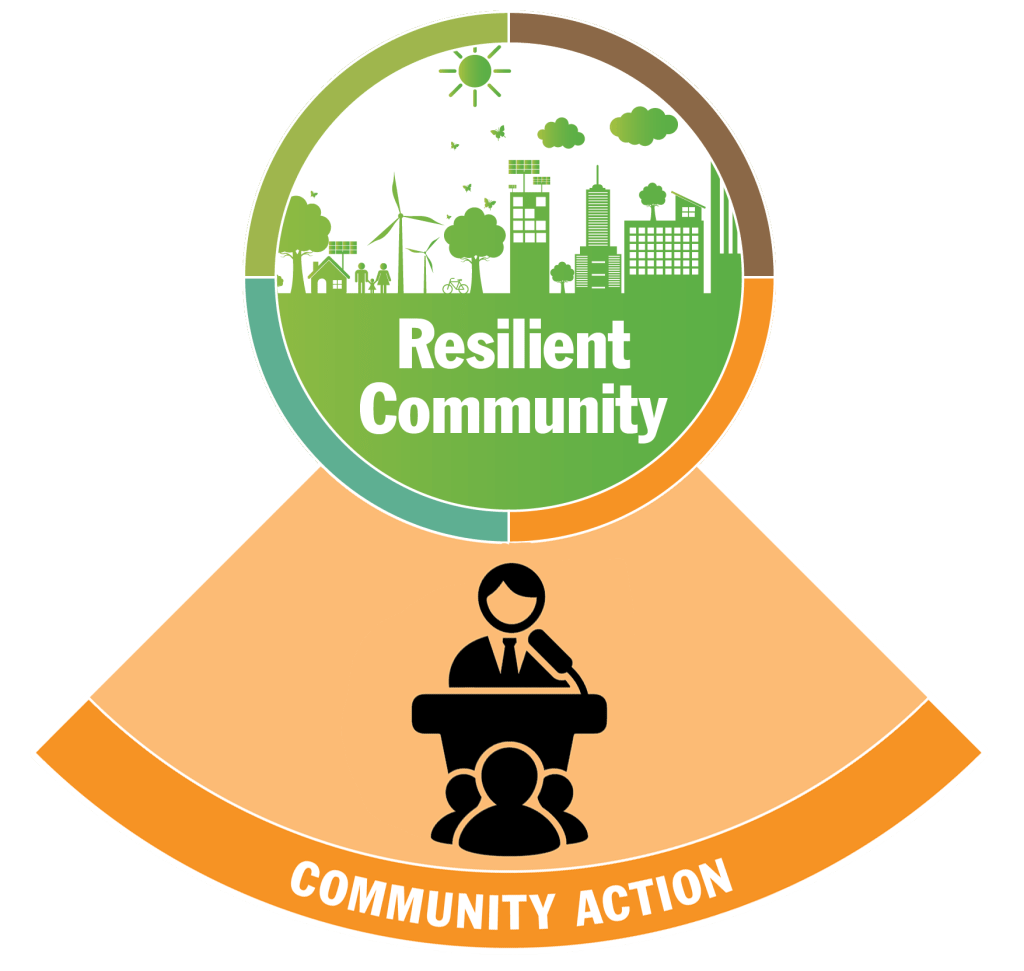
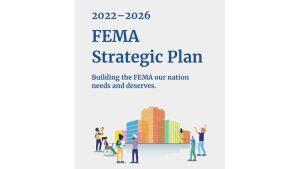
2022-2026 FEMA Strategic Plan
The landscape and scope of emergency management is changing quickly. Ten years ago, FEMA managed an average of 108 disasters a year. Today they manage an average of 311 disasters plus the ongoing response to the COVID-19 pandemic. In December 2021, FEMA released their 2022-2026 Strategic Plan that addresses these changes.
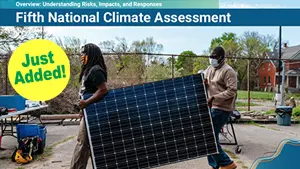
5th National Climate Assessment
The Fifth National Climate Assessment is the US Government’s preeminent report on climate change impacts, risks, and responses. It is a congressionally mandated interagency effort that provides the scientific foundation to support informed decision-making across the United States.
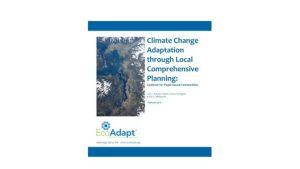
Adaptation Through Local Comprehensive Planning: Guidance for Puget Sound Communities
This extensive guidance document was developed as a result of a vulnerability assessment and local comprehensive plan update process undertaken by the City of Bainbridge Island, which worked with the climate consulting firm EcoAdapt.
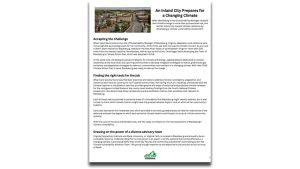
An Inland City Prepares for a Changing Climate
When Blacksburg’s new Sustainability Manager realized that climate change is more than just sea level rise, she led her inland city toward climate resilience by developing a climate vulnerability assessment.
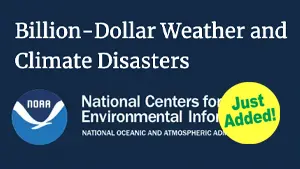
Billion-Dollar Weather and Climate Disasters
The National Centers for Environmental Information’s (NCEI) Billion-Dollar Disasters product is intended to show the impact of extreme weather and climate events on the economy in inflation-adjusted dollars.
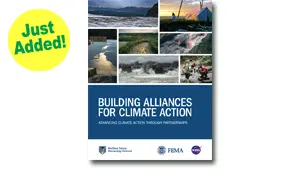
Building Alliances for Climate Action
FEMA’s Building Alliances for Climate Action is a guide that provides resources, insights, and stories to help people and organizations address climate change.
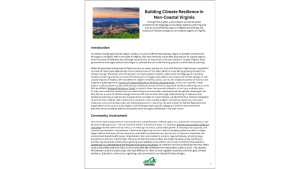
Building Climate Resilience in Non-Coastal Virginia
This report identifies four relevant categories of actions that could be taken to promote resilience in non-coastal Virginia: community organizing, education initiatives, economic productivity, and improving access to resources.
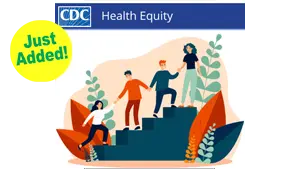
CDC Office of Health Equity
The Centers for Disease Control Office of Health Equity exists to ensure health equity is embedded in an all-of-public health approach to overcoming persistent health disparities and health inequities across a range of population groups that disproportionately experience poor health outcomes.
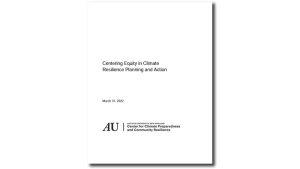
Centering Equity in Climate Resilience Planning and Action
This paper introduces and amplifies principles and best practices for centering equity in climate resilience planning and action. The audience is primarily users of the U.S. Climate Resilience Toolkit and its Steps to Resilience.
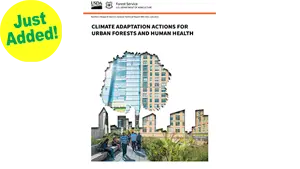
Climate Adaptation Actions for Urban Forests and Human Health
This report synthesizes adaptation actions to address climate change in urban forest management and promote human health and well-being through nature-based solutions. It compiles and organizes information from a wide range of peer-reviewed research and evidence-based reports on climate change adaptation, urban forest management, carbon sequestration and storage, and human health response to urban nature.

2022-2026 FEMA Strategic Plan
The landscape and scope of emergency management is changing quickly. Ten years ago, FEMA managed an average of 108 disasters a year. Today they manage an average of 311 disasters plus the ongoing response to the COVID-19 pandemic. In December 2021, FEMA released their 2022-2026 Strategic Plan that addresses these changes.

5th National Climate Assessment
The Fifth National Climate Assessment is the US Government’s preeminent report on climate change impacts, risks, and responses. It is a congressionally mandated interagency effort that provides the scientific foundation to support informed decision-making across the United States.

Adaptation Through Local Comprehensive Planning: Guidance for Puget Sound Communities
This extensive guidance document was developed as a result of a vulnerability assessment and local comprehensive plan update process undertaken by the City of Bainbridge Island, which worked with the climate consulting firm EcoAdapt.

An Inland City Prepares for a Changing Climate
When Blacksburg’s new Sustainability Manager realized that climate change is more than just sea level rise, she led her inland city toward climate resilience by developing a climate vulnerability assessment.

Billion-Dollar Weather and Climate Disasters
The National Centers for Environmental Information’s (NCEI) Billion-Dollar Disasters product is intended to show the impact of extreme weather and climate events on the economy in inflation-adjusted dollars.

Building Alliances for Climate Action
FEMA’s Building Alliances for Climate Action is a guide that provides resources, insights, and stories to help people and organizations address climate change.

Building Climate Resilience in Non-Coastal Virginia
This report identifies four relevant categories of actions that could be taken to promote resilience in non-coastal Virginia: community organizing, education initiatives, economic productivity, and improving access to resources.

CDC Office of Health Equity
The Centers for Disease Control Office of Health Equity exists to ensure health equity is embedded in an all-of-public health approach to overcoming persistent health disparities and health inequities across a range of population groups that disproportionately experience poor health outcomes.

Centering Equity in Climate Resilience Planning and Action
This paper introduces and amplifies principles and best practices for centering equity in climate resilience planning and action. The audience is primarily users of the U.S. Climate Resilience Toolkit and its Steps to Resilience.

Climate Adaptation Actions for Urban Forests and Human Health
This report synthesizes adaptation actions to address climate change in urban forest management and promote human health and well-being through nature-based solutions. It compiles and organizes information from a wide range of peer-reviewed research and evidence-based reports on climate change adaptation, urban forest management, carbon sequestration and storage, and human health response to urban nature.
